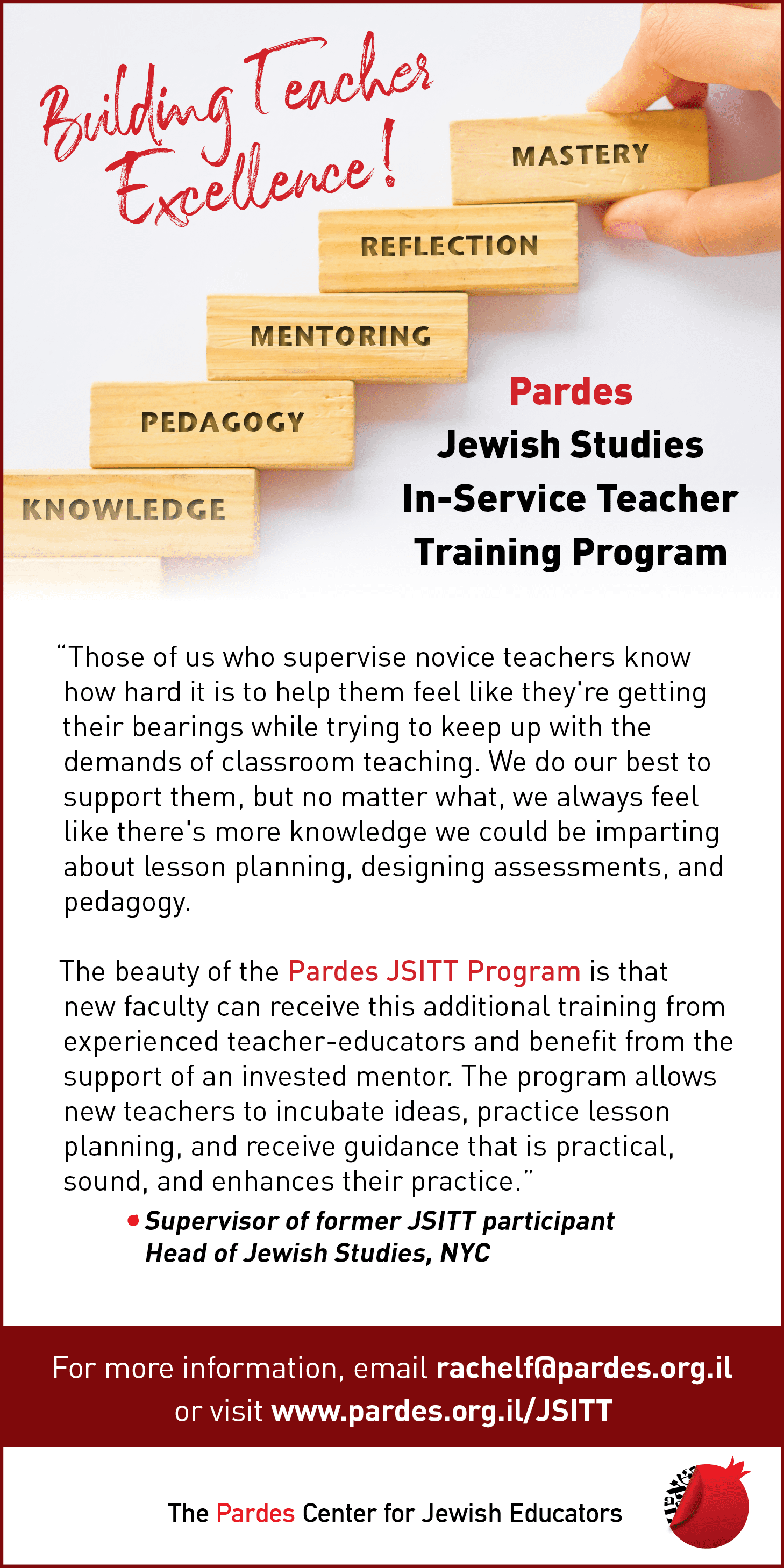We are meaning-seeking animals. It is what makes us unique. To be human is to ask the question, Why?
Rabbi Lord Jonathan Sacks
A single moment can retroactively flood an entire life with meaning.
Viktor Frankl
Viktor Frankl, the renowned psychiatrist and Holocaust survivor, founded the logotherapy school of psychotherapy which suggests that a search for a life of meaning is the central human motivational force. Meaning-making is the process by which people interpret and find meaning in situations, events, and experiences in their lives, as well as in relationships and in their own sense of self. The pursuit of meaning is the most human of quests.
This paper explores the roles of educational institutions and educational practitioners as providing opportunities for learning how to make meaning. I will argue that social structures (family, school, camp) serve to acculturate students into meaning systems, enabling young people to participate in the prevailing social norms of the community or society. Role modeling plays a central role in the process of making meaning by encouraging students to pursue not only the values of the culture but the process of finding meaning as well.
Role Modeling
Educational institutions have an important part to play in the process of socialization, which can be defined as the manner in which specific convictions, notions, beliefs, practices, values, and norms are transmitted to future generations. Transmission happens primarily through the observation of and in conversation with significant others, such as parents and other family members, teachers, youth workers/counselors, and sometimes also peers. This exposure enables young people to participate in the prevailing social norms of the community or society.
Significant others, functioning as role models, provide a social immersion into the values of the community, demonstrating that they can be lived in a real and practical way. Sociologist Peter Berger coined the term “plausibility structures” to describe how this works. Belief systems are inherently socially constructed and socially maintained, so that the plausibility of a belief is dependent on the social support this belief receives. When a young person, or in fact someone of any age, participates in social networks of individuals who share certain beliefs, those beliefs become plausible. The role models in these social networks provide opportunities for the observation and emulation of behavior as an expression of values and beliefs. For example, someone raised in a religious home will likely hear God-talk with some frequency and will be open to the idea that God exists and plays a role in his or her life. He or she will perceive as natural the notion that there are obligations imposed on us by a Higher authority—a concept which will sound foreign to someone raised in a staunchly atheist home. Similarly, someone raised in a home with strong family history will relate to the past and his or her identity very differently than someone raised in a home lacking a deep family tradition.
The plausibility structures created by role models who are grappling with meaning-making in their own lives, and find a way to share this, model not only a specific journey of meaning-making but the process itself, empowering observers to embark on the process as well. Role models for meaning-making can function as both inspirational role models—inspiring the process, and practical role models—demonstrating the how of meaning-making.
An Inspirational and Practical Role Model
In 2010, Rabbi Jonathan Sacks received the Abraham Kuyper Prize for Excellence in Reformed Theology and Public Life from Princeton Theological Seminary, awarded to scholars who have made significant contributions to Dutch neo-Calvinist theology. In a 2018 interview, he remembers asking his wife Elaine, “What is this for? What does Hashem want from me with this?” Two years later he felt that he had his answer. The Dutch parliament banned shechita and the small Dutch Jewish community asked him to address the Dutch parliament with a defense. Abraham Kuyper was the Dutch Prime Minister at the turn of the twentieth century, and a neo-Calvinist theologian and Rabbi Sacks had his calling card. Rabbi Sacks began his address “You may be wondering what a British Parliamentarian is doing addressing the Dutch parliament, but I may be the only rabbi who has received a prize for his contributions to Dutch neo-Calvinist theology!”
This is but one of many examples when Rabbi Sacks shared the meaning he found in events that happened in his life. The essential question he would ask himself and encourage others to ask, is “what am I being called on to do given that this has happened?” With this question, the search for meaning begins, and Rabbi Sacks modeled the process on numerous occasions when he shared examples from his life in his writings and speeches.
Rabbi Sacks was a personal role model for meaning-making for myself and many others. He modeled for those who were lucky enough to have a personal relationship with him, but he also had an impact on many others through the stories he told, sharing with the world the way he made sense of his own life. This can be profoundly impactful, but I would argue the more access granted to the educator, and the more personal and intimate the relationship between educator and student, the more powerful the impact of the role modeling will be. We need to expose our students to role models like Rabbi Sacks, but even more importantly, we need to allow them access to ourselves, modeling how we navigate meaning-making and living a religious life.
Takeaways for the Jewish Educator
What does this mean for the educator? I believe it means sharing more than the educator may have previously been trained to do or was comfortable doing. It means having the courage to open up and be vulnerable in front of students, sharing the meaning he or she has found, and sometimes struggles to find, in his or her own personal religious journey. This includes an aspect of transparency, revealing the process of seeking that meaning, including dealing with setbacks and obstacles. Sometimes this will happen through the educator’s participation in the discussion with students in a more formal context, and sometimes there will be opportunities for more informal conversations with students, where the educator’s religious outlook and personal meaning-making are shared in an organic and impactful way. These conversations are often the ones that last longest in the minds of the student; finding opportunities for them should be a priority.
In the oft-quoted words of A.J. Heschel, “What we need more than anything else is not textbooks, but textpeople. It is the personality of the teacher which is the text that the pupils read: the text that they will never forget.” Watching the educator living their Judaism, modeling the meaning-making they have achieved, will inspire and demonstrate the possibilities for meaning-making open to our students.

Daniel Rose
Daniel Rose is a Jewish educator and educational consultant, working with programs and institutions across the world, including the Office of Rabbi Sacks, Koren Publishers, the London School of Jewish Studies, and the Melton Center, Hebrew University.



